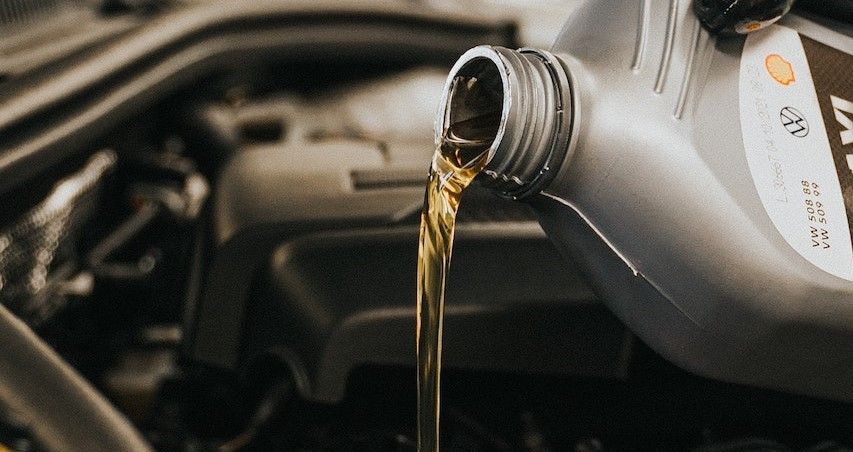Polymer Nanoparticles Boost Stainless Steel Lubricants
Is nanomaterial-enhancing the key to next-generation engine oil formulations?

Since the earliest machines, oils have been used to prevent wear and tear on engine parts. It is also vital for machine efficiency. Now nanotechnology researchers have found that this effect can be boosted by incorporating polymer nanoparticles into lubricating oil.
The breakthrough was made at the University of Sheffield in England, were the material scientists found that the epoxy functionalization of polymer nanoparticles results in a considerable decrease in friction on metal surfaces.

Well-lubricated automotive engines use less fuel, emit fewer emissions, and experience less wear over time.
“Mineral oil is widely used as a lubricant, and nanoparticles can be directly prepared within this solvent using a technique known as polymerization-induced self-assembly,” explains the nanotech journal NanoWerk. “Coating the surface of the metal components with nanoparticles of a few dozen millionths of a millimetre in size protects them from direct contact.”
The details behind the discovery have now been published in the respected scientific journal Angewandte Chemie. Which reports how, “Csilla György and Steve Armes at the University of Sheffield (UK) designed ‘hairy’ nanoparticles comprising oil-soluble poly(lauryl methacrylate) chains and an oil-insoluble nanoparticulate core. These nanoparticles were made to stick strongly to metal surfaces by introducing epoxy groups into the ‘hairs’ by copolymerizing lauryl methacrylate with glycidyl methacrylate, an epoxy-functional monomer.”

The scientists discovered that the hydroxy groups on the stainless steel surface reacted with the epoxy-bearing nanoparticles. As a result, the nanoparticles adhered strongly due to a process known as chemical adsorption. Interestingly, the effect of this phenomenon was heavily influenced by the exact position of the epoxy groups.
“To our surprise,” says Armes, “introducing a far larger number of epoxy groups into the nanoparticle cores had no beneficial effect.”
Tribological studies in collaboration with scientists at Lubrizol, a UK-based engine oil additives company found that the new nanomaterial significantly reduced friction.
“Remarkably, the adsorbed nanoparticles remained intact on the stainless-steel surface after such experiments, which were conducted at the typical operating temperature of an internal combustion engine,” adds Armes.

While further experimentation is still required, it is clear that this discovery could have a major impact on the efficiency of any metal moving part. Given the wider influence of machinery in both transport and industry and a need to make fossil fuel savings it could even help towards achieving NetZero targets.
Nanomaterial and polymer specialists are even wondering if nanomaterial-enhancing will be a player in next-generation engine oil formulations.
Photo credit: Mike B on Pexels, Pixabay, Luis Dalvan, & Daniel Andraski

